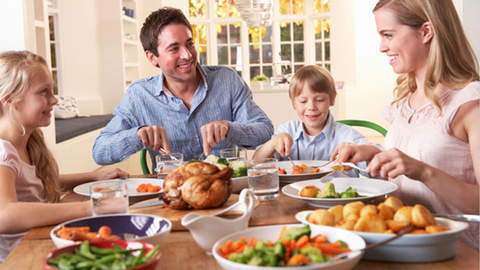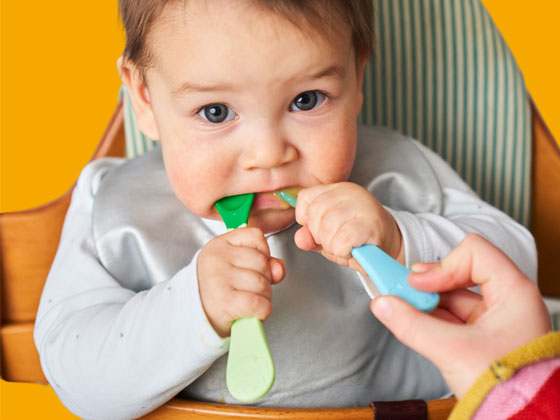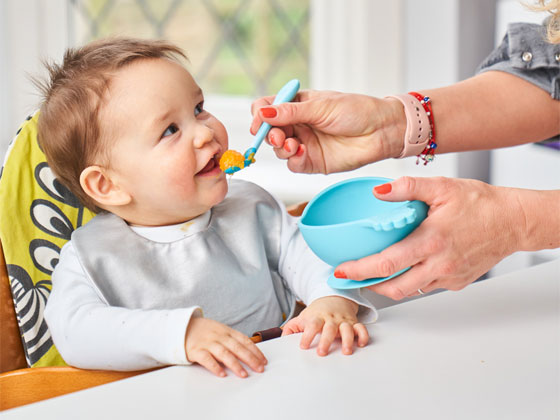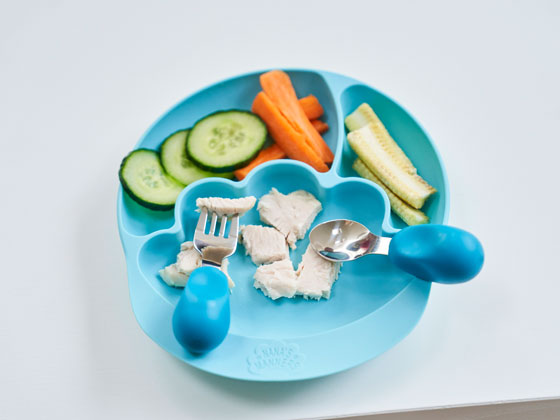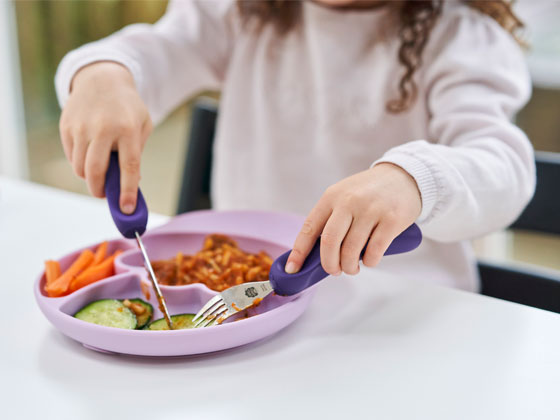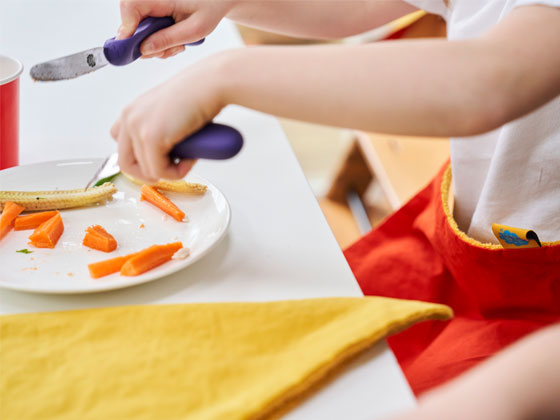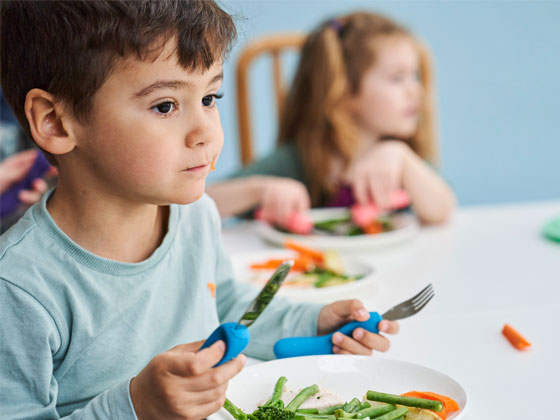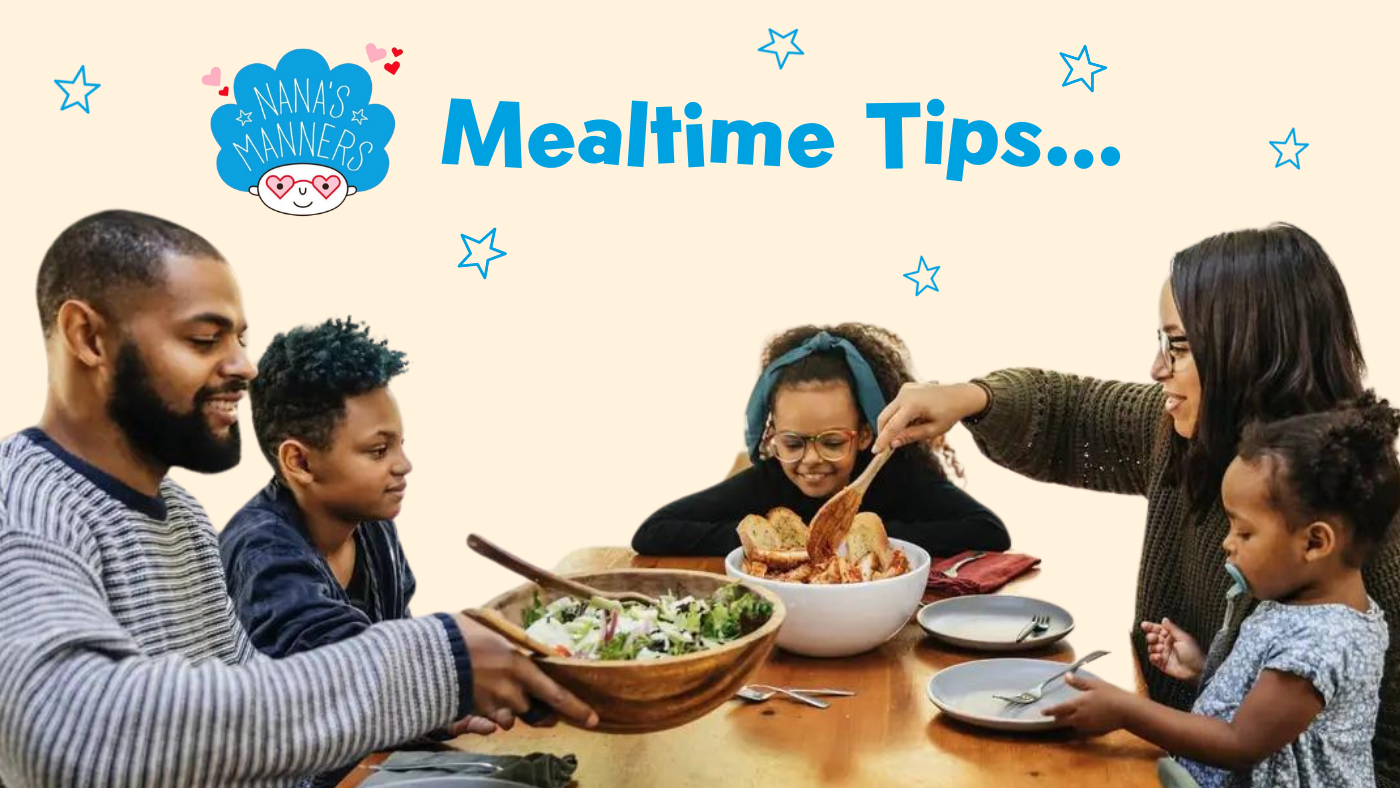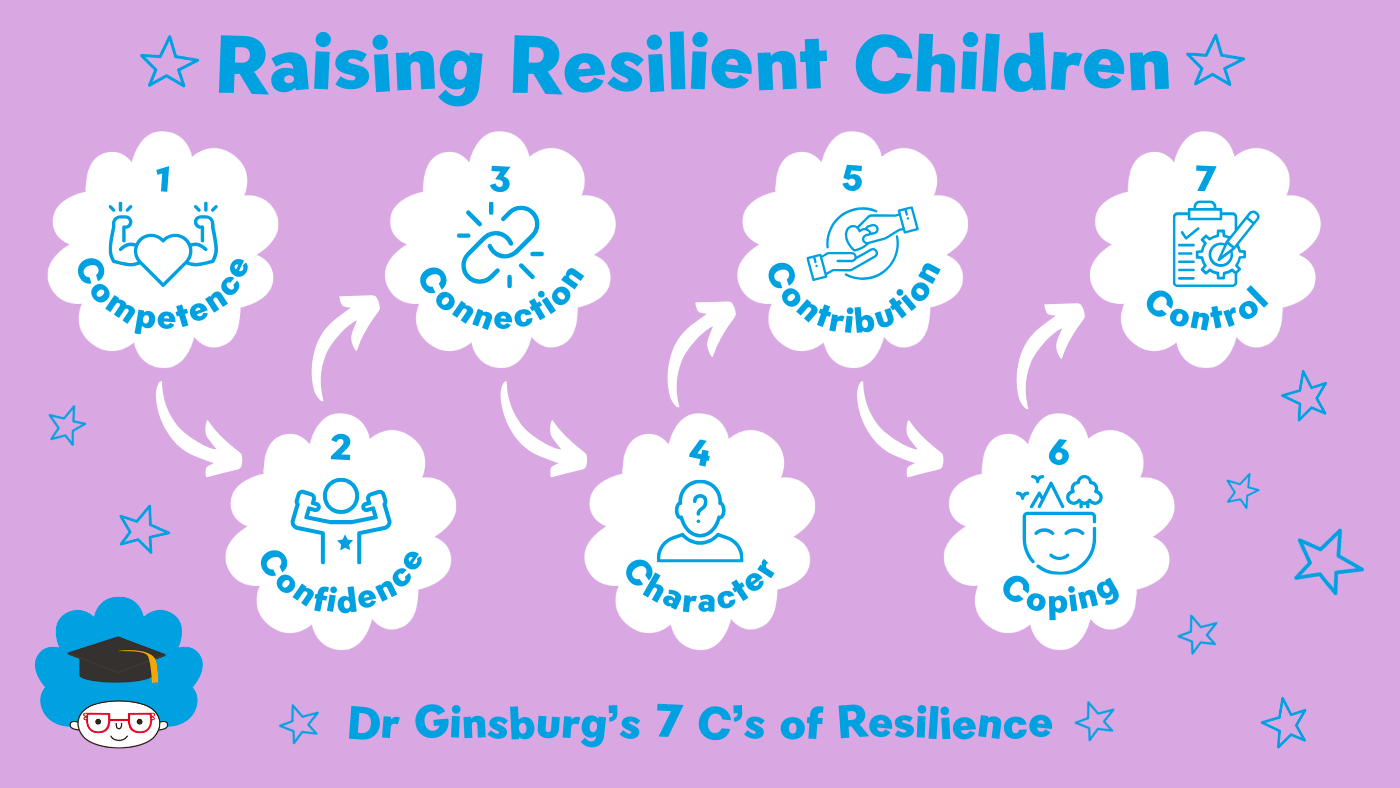Treating young children like adults might sound a bizarre idea at first. We are the adults and they are the children – we’re reminded of that multiple times every day (cue mental load). There’s a reason that this joke hits home!
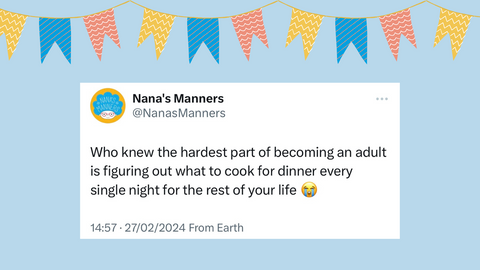
Dare we say mealtimes with young children is not likely to be the most relaxing part of your day. Some days may be a breeze – others may leave you feeling like you’ve put in an 8-hour shift over breakfast. If you’re feeling the intensity and looking for ways to break a cycle that’s become stressful, here’s a new approach to try…
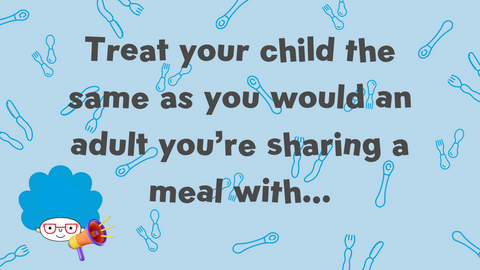
This might sound a bit bizarre at first but stick with us! Consider the difference in how you act at mealtimes with your young child compared to those with your partner or friends. Think how those differences can affect the experience for your little one during these 3 essential parts of every day…
Don’t tell them what to eat...
If your friend doesn’t like broccoli, would you pile their plate high with it? They may have had a previous negative experience with a food, but if prepared / served in a different way, they may want to try it again. It is of course important to offer a variety of foods to a child, but rather than putting it on their plate, offer it on the side. They’ll be more likely to try something without the pressure of having it directly in front of them, especially if they see you choosing to put some onto your plate also.
Don’t tell them how much to eat...
Would you tell your friend to eat 3 more spoons of carrots? They’ve opted not to eat them for a reason. You’re more likely to lightly ask them if there is a reason they’re leaving that part of a meal and then listen to their answer. Maybe they are full? Try casually asking your child and listen to their answer.
Don’t wipe their face or fingers during the meal...
Aside from your partner perhaps (laughing over here), can you imagine wiping your adult meal companion’s face or hands (with no invitation) while they’re eating?!? You wouldn’t dream of it for so many reasons. You’d respect their personal space, and certainly ask if you felt they needed any help on this front before doing so. Respect your child’s personal space in the same way.
Don’t help them to eat unless they ask/need it...
Similar to the last point – imagine picking up your partner’s fork and loading it before trying to put it into their mouth because you though they were eating too slowly! If you saw them struggling with something you’d offer help – struggling to cut their steak? Maybe they need a better knife? But no one wants someone hovering over them and to feel ‘watched’ whilst they are exploring and enjoying their meal. Set them up to succeed – good plate designed to allow them to scoop their food (link), good cutlery (link) then allow them to get on with it unless they need support.
Don’t eat in another part of the room to them...
As parents we’re constantly trying to do 3 things at once and it’s all to easy to end up doing something else whilst picking at your food and your child is sat at the table. But taking that time to sit with them not only allows them to watch and model your behaviour, but changes the whole atmosphere around mealtimes. They become an experience to do together, not just another part of the day to get through.
Don’t start clearing up and sorting dishes before they have finished...
We know that to-do list is never ending, but sitting with them for those extra few minutes can change not only how much they end up eating, but leave them with the memory of an enjoyable experience they shared with their parent. Imagine leaving your friend at the restaurant table because you’d finished and wanted to go to the bar?! Mealtimes are best shared and staying with that person shows you value and respect their company.
Because let’s face it, if you ate this way with an adult, would they look forward to the experience again?..
Try instead to;
Talk about the meal you’re sharing...
Think about how you would speak with an adult mealtime companion; “this fish is lovely!” this sauce is great on the veg!”… If your child hears your positive thoughts about the food you’re sharing together they’re much more likely to want to try what’s on offer, especially if it’s unfamiliar to them.
Talk about food in general...
A conversation around food will help keep them focused on the task at hand! Age appropriate of course (very young children may not want to know exactly where beef comes from right now) but a great conversation can be had over the difference between fruit and vegetables – can they see the seeds? Which part of the plant do they think carrots come from?..
Enjoy the experience with them...
Much like sharing a meal with a friend, your child wants to feel that you want to be there with them. This can be easier said than done at the end of a long day, but they will pick up on your body language and mood, so trying to set aside everything running through your mind for 15 minutes or so will make such a difference here.
Listen to them...
We’ve all had to sit through a meal (possibly work related) with someone who loves the sound of their own voice! Conversations work both ways and a meal companion that you can enjoy your time with creates a whole different experience with. If you think back to some of your favourite meals out, it’s not just the food you remember, but the company too. This may be a better time to talk about their day compared to the journey back from school (-we all know how that goes!) They may start to talk about something completely random - go with it! It may well turn into a conversation to remember!
